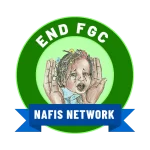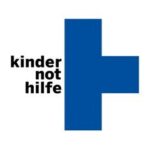

1.0 About Nafis
Network against FGC in Somaliland (NAFIS) is an anti-FGC civil society Network that was established in 2006 to work toward ending female genital cutting (FGC) in Somaliland and empower women and girls to claim their rights. To reach this ambitious goal of ending SGBV, especially in FGC, NAFIS utilizes a holistic approach that includes coordination and networking, policy dialogue, research, women’s economic empowerment, and enlightening the public.
In collaboration with Kindernothilfe (KNH) with the grant awarded from the German Federal Ministry of Economic Cooperation and Development (BMZ), NAFIS Network is implementing a multi-year community empowerment project on abolishing violence against children and women in Marodijeh, Togdher, and Awdal regions of Somaliland. The project has explicitly empowered the Cluster level Associations (CLAs) of the Self-help group approach. Strengthen NAFIS members and other civil society organizations. Works with health workers at Mother and Child Health Centers and, finally, the politicians and legislators to act on policies/laws affecting women and children.
2.0 About the consultancy service
A comprehensive manual/tool for training community members needs to be developed. Community-based social workers named (change agents) will use the training manual to conduct training, community mobilizations, and advocacy skills required at the grassroots level. NAFIS is looking for an advocacy expert for the development of a user-friendly training manual and modules. This Manual should be a self-teaching document as v for their grassroots interventions in the long run.
3.0 Objectives of the manual
The main objective of the Manual is to promote women’s rights and children about the violence against women and girls in Somaliland and to empower the change agents to deliver comprehensive community-based training at CLAs.
3.1 Specific Objectives
- Build the knowledge of women in Cluster Level Associations’ about their rights – advocacy and social rights
- Increase the safety of the girls and women at imminent risk of sexual and gender-based violence.
- Improve access to and demand for support services and justice mechanisms for survivors
- Promote positive change through awareness-raising and outreach activities.
- Strengthen and develop sustainable community-based protection mechanisms to prevent and respond to FGC and GBV.
4.0 Purpose of the Consultancy
The primary purpose of this consultancy is to develop an advocacy manual for use by the field teams implementing the project.
- To develop a training manual – made up of a number of modules – for community-based women’s groups (CLAs) that cover topics including protection, FGM/GBV prevention and response, primary case management and psycho-social skills, training skills, advocacy, and coordination skills.
- To develop a training and advocacy manual – made up of a number of modules – for community-based women’s groups (CLAs) that cover topics focused on civic and social rights and promoting women’s rights to bodily integrity.
- To develop IEC materials for use in delivering the training listed above.
5.0 Expected Deliverables
The consultant will be expected to:
- Submit a detailed work plan for the consultancy period/inception plan
- In consultation with Project Team, develop and submit the draft of the training/advocacy manual in line with the objectives detailed above.
- Revise and refine the content of the training manuals after receiving feedback from the NAFIS team
- Deliver the finalized training manuals.
- Train the project staff and the change agent women on the contents and the usage of the Manual.
The Manual should be:
- 5 spacing, Times New Roman font, size 12.
6.0 Criteria for selection
The consultancy item’s expectation and maximum scores are presented in the table below.
|
Evaluation Item |
Expectation |
Max Score |
|
Organizations/Consultant Experience |
A brief of past relevant assignments indicating scope, geographic coverage, and staff involved and budget. |
30 |
|
Understanding of TOR and Proposed Approach and Methodology/Work Plan |
Consultant’s perspective of what the assignment entails and the key considerations that should be made to implement it successfully. |
20 |
|
Qualification & Experience of Staff |
CV’s for consultants and team members indicating their academic qualification and clear relevant experience summary |
20 |
|
Financial Costs |
A breakdown of costs detailing proposed staff days, daily rates, taxes and other direct costs related to the assignment in USD. |
30 |
7.0 Requirements of the consultant
The consultant should have a mix of expertise in Child rights, women and youth empowerment, female/male empowerment, youth involvement and education.
Consultant. Preferably at Masters level. He/she should have strong experience in Child rights, female empowerment, community development, youth involvement and education as well as excellent analytical, communication, team management and communication skills (verbal and written). He/she should demonstrate experience in impact evaluations and practical experience in qualitative and quantitative research methodology, evaluation design and implementation. The consultant must be committed to implementing child protection and child safeguarding practices during the consultancy service. Command of local language(s) Somali and English. Provide references on similar or related manuals focusing on children s’ rights, GBV/FGM etc. would be an added advantage.
8.0 Tentative financial proposal (budget) containing:
- Manual development proposal illustrating, technicalities and costs
- Any other related costs and required for the proper execution during the developing Manual.
8.1 Payment Terms
- Payment plan shall be based on deliverables outlined upon the successful and satisfactory completion of activities. Therefore, the payment terms shall be as follows;
− 40% initial payment – upon signing the contract.
− 60% – final payment – Upon submission of final and accepted final advocacy manual by the executive director.
- Payment under this Agreement will be made by bank transfer to the consultant.
9.0 Proposed time-frame
This consultancy is expected to be completed within 2 weeks. The consultant will be expected to start working on 20th January 2023.
10.0 To apply;
Interested Consultants/ University departments/lecturers/individuals or firms are requested to submit:
- A technical proposal detailing their interpretation of the TOR proposed methodology, including sampling framework, work schedule, and proposed budget;
- A capability statement demonstrating how they meet the required qualifications and competencies;
- Copies of all relevant Curriculum Vitae (CVs).
- Examples of previous work similar to this assignment
If you have experience working in a similar capacity, meet and the above profile, please submit your proposal, including your financial plan and any other similar documents, to NAFIS using the following email address by 8th January 2023 to procurement@nafisnetwork.org
